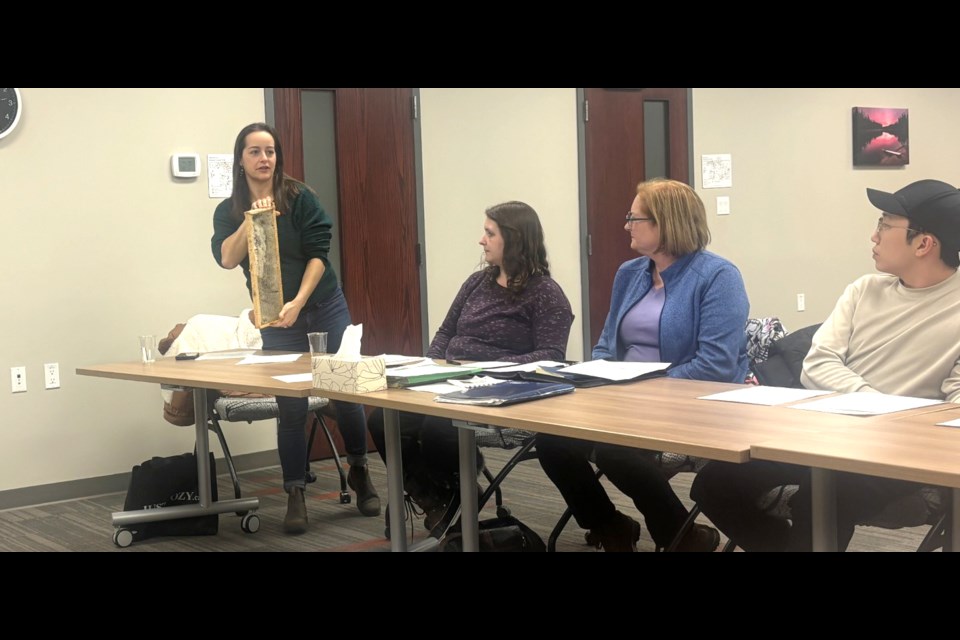COLD LAKE - The Lakeland Bee Club held an open meeting on Jan. 23 at the Cold Lake and District FCSS building to discuss plans for the upcoming season and introduce the club to potential new members.
The club has four hives, hosted at Lisa Small’s house. Small is the treasurer of the Lakeland Bee Club.
“The bee hives for the club are hosted at my house. We started with two, there's now four,” said Small.
She also expressed interest in expanding her beekeeping efforts, stating, “I'm thinking about getting my own, but it's also a lot of work with the club hives, so we'll see.”
Lauren Stremick, vice-president of the club, shared her beekeeping journey.
“I live over the border in Goodsoil. I started beekeeping five years ago, kind of on a whim,” she said. “I did some online courses, got my bees in, got into a suit. I joined the club when I started three years ago.”
Stremick now operates 18 hives.
“Last year, we harvested 1,600 pounds of honey. I have a couple hundred pounds left.”
Club President Diane Jenkinson gave an outline for potential changes to membership fees.
“We wanted to have a discussion about the potential change to membership fees. At this moment in time, how we've worked it in the past two years, is that there's a yearly family Hive membership fee,” she explained. “So that gives you, for $80 a year, access to all meetings and regular hive visits, participation in honey extraction, shares in honey, and then when honey is available for harvest.”
The club agreed to maintain the current membership fees, with the annual Family Full Membership set at $80 and the Family Associate Membership at $30.
Reflecting on past years, Jenkinson noted, “Our first year we did fairly well, our second year a little better, but we had hope for more. But everybody got a kilo of honey for the two years.”
"The money from the memberships goes towards purchasing equipment to maintain our club hives, which we use for teaching on, and that's also how we get our honey,” she explained.
The club is planning to purchase an extractor, which will be owned by the club, but available for loan to members for their own hive extractions.
The club plans to purchase other tools needed for honey extraction, such as pails, uncapping forks, and knives. This will help members avoid the high costs of buying their own equipment.
Additional planned purchases include an oxalic acid vaporizer, battery, honey supers, queen separator, mouse guards, Quebec-style bee escape, several hive tools, honey refractometer, and more.
Jenkinson acknowledged the challenges of operating a volunteer-run organization.
“Because it is all volunteer run, as you expand, it does become a lot of work and very time-consuming,” she said. “So, we just want to have good hives to teach people on so that people can get the best experience."
Education remains a primary focus for the club.
“It's more for the educational aspect of it,” Jenkinson added.
For more information about memberships, individuals are welcome to reach out to the Lakeland Bee Club.



